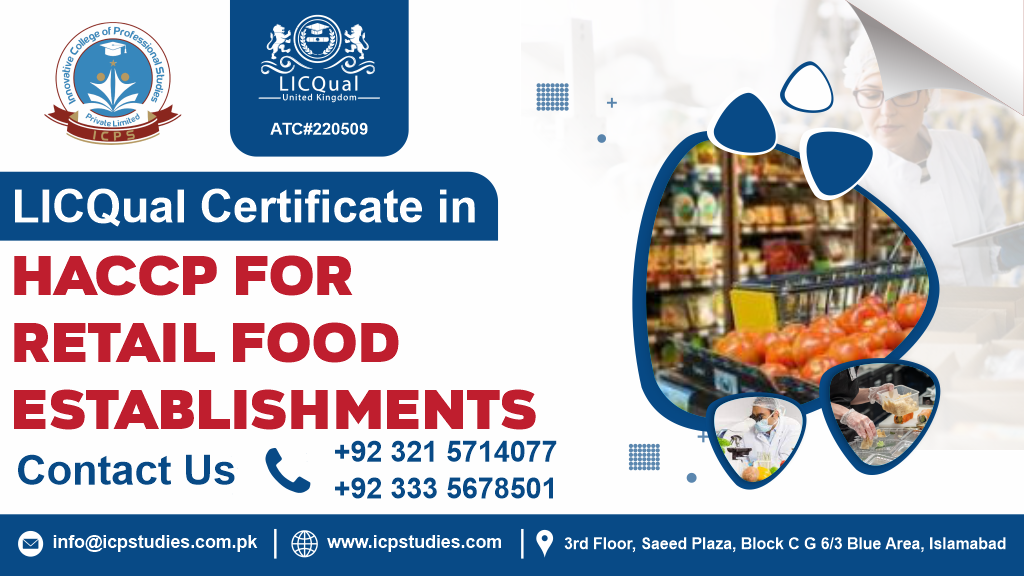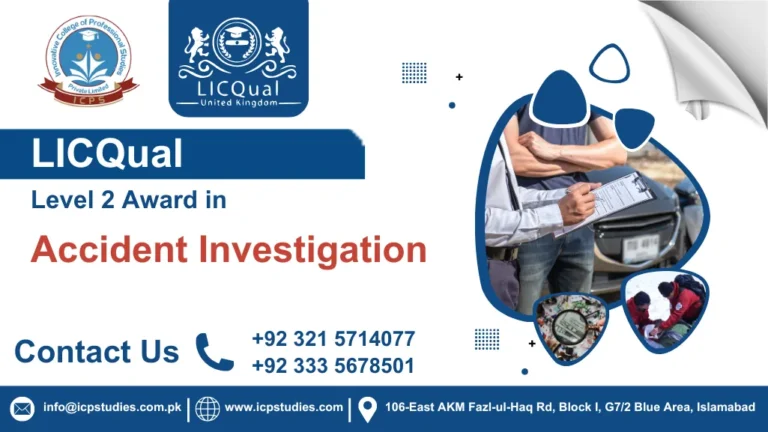In the realm of food safety, one acronym reigns supreme: HACCP. Standing for Hazard Analysis and Critical Control Points, HACCP is a systematic approach to identifying, evaluating, and controlling food safety hazards. For retail food establishments, where ensuring the safety and quality of products is paramount, obtaining a Certificate in HACCP is not just an option; it’s a necessity.
HACCP is a preventive approach to food safety that focuses on identifying potential hazards in the food production process and implementing measures to control and eliminate these hazards. From biological, chemical, and physical hazards to cross-contamination and improper storage, HACCP covers a wide range of factors that can compromise the safety of food products.
Certificate in HACCP for Retail Food Establishments not only enhances your knowledge and skills in food safety management but also opens up new opportunities for career advancement. Whether you’re looking to pursue leadership roles within your current organization or explore opportunities in other sectors of the food industry, HACCP certification demonstrates your commitment to excellence and sets you apart as a trusted expert in food safety.
All About Certificate in HACCP for Retail Food Establishments
Course Overview
The “Certificate in HACCP for Retail Food Establishments” is a specialized training program designed to equip individuals working in the retail food industry with the knowledge and skills necessary to implement and maintain a Hazard Analysis and Critical Control Points (HACCP) system. HACCP is a systematic approach to food safety management that focuses on identifying and controlling potential hazards throughout the food production process to ensure that food products are safe for consumption.
Certificate in HACCP for Retail Food Establishments provides participants with the necessary tools and expertise to ensure the safety and integrity of food products in a retail setting.
Study Units
- Introduction to HACCP and its Application in Retail Food Establishments
- Hazards Identification and Analysis in Food Handling
- Establishing Critical Control Points (CCPs) and Preventive Measures
- Implementing and Managing a HACCP Plan in Retail Settings
- Monitoring, Verification, and Documentation of HACCP Processes
- Creating a Food Safety Culture and Training Staff in HACCP Practices
To enroll in the Certificate in HACCP for Retail Food Establishments course, candidates should meet the following entry requirements:
- Basic HACCP Knowledge: Completion of an introductory HACCP training course is recommended to ensure a foundational understanding of HACCP principles.
- Relevant Work Experience: A minimum of six months of experience in food handling, retail, or safety is preferred.
- Educational Background: A high school diploma or equivalent is generally required; relevant certifications in food safety or retail management may also qualify.
- Age Requirement: Participants must be at least 18 years old.
- Language Proficiency: Proficiency in the language of instruction is necessary to fully engage with course materials.
- Commitment to Food Safety: A demonstrated interest in implementing and maintaining food safety standards in a retail environment.
These requirements ensure that participants are well-prepared to engage with the course content and apply the knowledge effectively in retail food settings.
The Certificate in HACCP for Retail Food Establishments course is designed for a diverse range of professionals, including:
- Retail Food Managers: Individuals responsible for overseeing food safety practices in grocery stores, restaurants, and other retail food outlets.
- Food Service Workers: Employees involved in food preparation, handling, and service in retail environments.
- Quality Assurance Staff: Professionals focused on ensuring compliance with food safety standards and regulations.
- Store Supervisors: Individuals managing daily operations and ensuring adherence to food safety protocols.
- Regulatory Compliance Officers: Personnel tasked with ensuring that retail establishments meet health and safety regulations.
- Students and Recent Graduates: Those studying food science, hospitality, or related fields looking to enhance their knowledge of food safety practices in retail settings.
This course is ideal for anyone seeking to improve their understanding of HACCP principles and enhance food safety in retail food establishments.
Learning Outcomes
- Food Safety Managers and Supervisors:
- Individuals tasked with overseeing food safety protocols, implementing HACCP systems, and ensuring compliance with food safety regulations within retail settings.
- Quality Assurance Professionals:
- Professionals responsible for monitoring and maintaining the quality of food products, conducting inspections, and implementing quality control measures to uphold food safety standards.
- Food Service Managers and Chefs:
- Managers and chefs responsible for food preparation, handling, and serving in retail food establishments such as restaurants, cafes, and catering services.
- Kitchen Staff and Food Handlers:
- Individuals directly involved in food handling, preparation, and storage, including cooks, kitchen assistants, and food service workers.
- Retail Store Managers and Personnel:
- Managers and staff members working in grocery stores, supermarkets, and convenience stores where retail food products are sold and handled.
- Regulatory Compliance Officers:
- Professionals responsible for ensuring that retail food establishments comply with local, national, and international food safety regulations and standards.
- Health Inspectors and Auditors:
- Inspectors and auditors responsible for conducting food safety inspections, audits, and assessments to evaluate compliance with HACCP principles and regulatory requirements.
- Entrepreneurs and Small Business Owners:
- Individuals who own or operate retail food establishments and seek to establish robust food safety management systems to protect the health and well-being of their customers.
- Students and Aspiring Professionals:
- Students pursuing a career in the food industry and individuals interested in advancing their knowledge and skills in food safety management, regardless of their current level of experience.
Overall, the Certificate in HACCP for Retail Food Establishments is suitable for anyone involved in the handling, preparation, or serving of food within a retail setting and seeks to enhance their understanding of HACCP principles and practices to ensure the safety and integrity of food products.
FAQs about Certificate in HACCP for Retail Food Establishments







